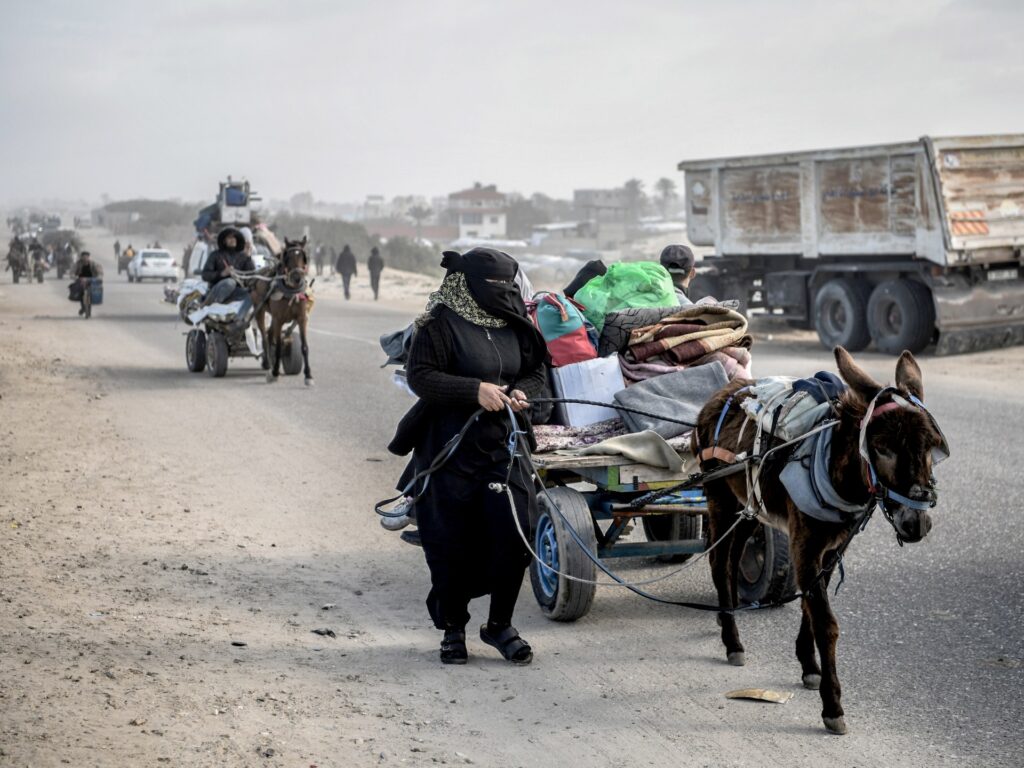A report in The Times reviews the economic and humanitarian crisis in Gaza, where the ongoing war and the total destruction of the Strip have caused the spread of disease, hunger, the loss of all basic foundations of life, and the heavy reliance on donkeys to perform many vital tasks, as a result of the lack of fuel and the scarcity of means of transportation.
The British surgeons Victoria Rose and Graeme Groom reported on their experience working in Nasser Hospital for a month, where they found that the “war” that appeared from the outside to be a battle between two equal parties actually consisted of an army equipped with equipment and gear, striking crowds of civilians in an attempt to hit an elusive opponent.
Rose and Groom spoke about the harsh conditions in which the population lives, saying that no one in Gaza goes to sleep knowing for sure that they will wake up at dawn the next day because of the continuous bombing, even in areas that are supposed to be safe, and “it is strange to find someone without a loss to complain about or an injury to keep them awake at night.”
The surgeons have witnessed the reality of Palestinian life first-hand, as their charity, Ideals – which stands for International Disaster and Emergency Assistance with Long-Term Support – has helped three surgeons, two nurses and a physiotherapist come to London for training.
The authors said that four of these colleagues returned to Gaza, and all of them lost family members. One nurse’s 17-year-old daughter died, while the other nurse’s 3-year-old daughter was seriously injured, with deep wounds to her side and a broken hip.
One of the specialists in the north lives in difficult conditions, while the two surgeons were injured, and the third – Adnan al-Barsh – was arrested by Israeli forces in December while working at al-Awda Hospital, and died in prison on April 19.
scarcity of resources and high prices
The writers said that the massive inflation in the prices of basic commodities has made Gaza one of the most expensive areas in the world, as the price of one cigarette has become about $16, while the price of a liter of fuel has reached $22, and the cost of one kilo of potatoes has become $150.
The price of a donkey and a cart has also risen to around $3,900, compared to $650 previously. This high cost is making people’s lives difficult, especially since donkey carts have become an essential means of transportation that covers life’s needs, from delivering necessities such as wood, coal and food to transporting the dead and injured.
The report touched on the daily suffering of doctors and nurses in hospitals, where there is a severe shortage of basic medicines to treat diseases such as diabetes. The surgeons found that kidney failure patients receive only 30 minutes of dialysis sessions, which is a very short period that is not enough to preserve their lives.
The two doctors concluded the report by stressing the need to convey what is happening in Gaza to the world, as the residents of the Strip feel that their suffering does not reach the international community. Rose and Groom said that whenever they asked a Palestinian about his suffering, they did not find overwhelming anger, but rather a modest, sad smile followed by the answer: “This is our life.”


